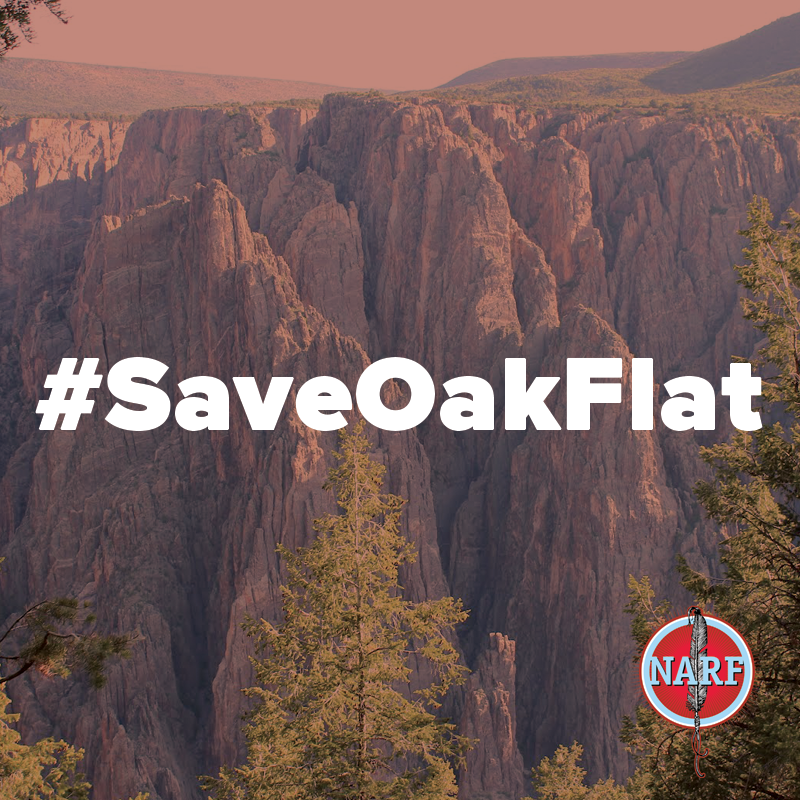
On April 25, 2024, the Tohono O’odham Nation, the National Congress of American Indians, the Inter-Tribal Association of Arizona, the Association on American Indian Affairs, and the National Association of Tribal Historic Preservation Officers filed an amicus brief urging all 29 Judges on the U.S. Court of Appeals for the Ninth Circuit to rehear Apache Stronghold v. U.S.
The nonprofit organization Apache Stronghold initially brought the case to protect a sacred place the Apache call Chí’chil Biłdagoteel, which translates into English as “Oak Flat” from being transferred to a mining company, Resolution Copper. The Tribal Nation and Tribal Organization amicus brief contends that a rehearing is exceptionally important because sacred places like Oak Flat are vital to many Tribal Nations’ religious practices. A final negative ruling will not only allow Oak Flat’s destruction but will bear grave consequences for all Tribal Nations whose religious practices depend upon sacred places.
Attorney General for the Tohono O’odham Nation Howard M. Shanker sees a rehearing as an opportunity for the Ninth Circuit to correct past legal interpretations. “Under current legal precedent, judges can rule that the total destruction of Oak Flat causes no ‘burden’ on Apache religious exercise. No burden, even though Resolution Copper intends to mine the sacred place until tunnels underneath Oak Flat cause it to collapse into a crater two miles wide and 1,000 feet deep. No burden, even though the mining would end religious customs practiced at Oak Flat. No burden, even though the Western Apache would lose the ability to practice religious ceremonies at this sacred place and the opportunity to pass these teachings on to future generations,” said Shanker.
On March 21, 2023, in Apache Stronghold v. U.S., an eleven judge en banc panel of the Ninth Circuit heard Apache Stronghold’s arguments to block the federal government from transferring Oak Flat to Resolution Copper. Resolution Copper intends to mine Oak Flat until it collapses into a two-mile wide crater. This will destroy the Apache’s land-based religious practices at Oak Flat. The destructive mining technique Resolution Copper plans to deploy will also render unfit the surrounding landscape that local communities call home. The en banc panel considered whether the land transfer, and subsequent mining, would “substantially burden” Native American religious exercise under the Religious Freedom and Restoration Act (RFRA).
In March 2024, the en banc panel handed down a lengthy set of opinions with a bare 6-5 majority opinion denying that the land transfer of Oak Flat constitutes a “substantial burden” under RFRA. The thin majority written by Judge Collins, came to its conclusion by rejecting the plain meaning of the term “substantial burden.” Instead, the Collins majority reached its decision by adhering to a novel theory of the term’s meaning that has no basis in precedent. In dissent, Judge Murguia vigorously disagreed, finding that the plain meaning and common sense require finding that Oak Flat’s destruction constitutes a “substantial burden” on Apache religious exercise for purposes of RFRA.
“The outcome of this case will have a drastic impact on the over 400 Tribal Nations whose homelands and sacred places fall under the Ninth Circuit’s jurisdiction,” said Native American Rights Fund (NARF) Staff Attorney Beth Margaret Wright.
Earlier this month, in response to the March 2024 decision, Apache Stronghold requested a review by the full slate of twenty-nine Ninth Circuit judges. In a brief filed today, the Tohono O’odham Nation and four Tribal organizations, represented by NARF, supported Apache Stronghold’s request for review by the full Court.
“The Ninth Circuit can and should hold the United States accountable to protect Tribal Nations’ religions and sacred places, like Oak Flat,” said NARF Staff Attorney Jason Searle.
More: About Oak Flat
More blog posts

